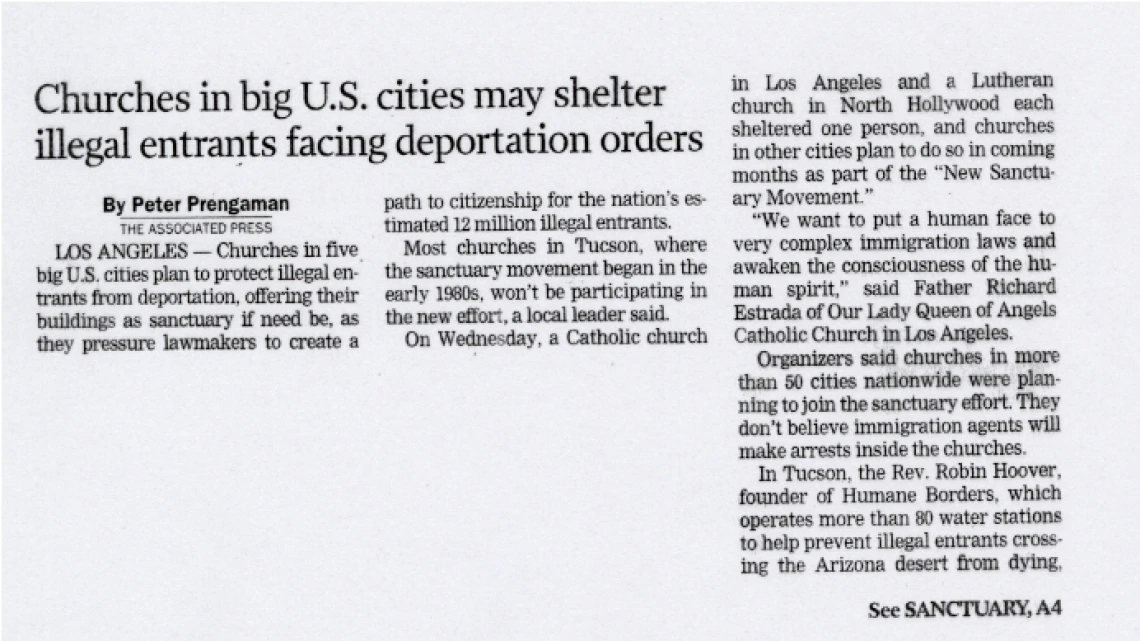Humane Borders records

Crop of photocopy of Tucson is Out of Sanctuary Loop article from the Arizona Daily Star, May 10, 2007; Box 7, Folder 28.
Collection area: Borderlands
Collection dates: 2000-2010
Records, 2000-ongoing (bulk 2000-2010). This collection is comprised of the records of Humane Borders. The bulk of the material relates to press coverage of the organization and its cause of reducing the number of migrant deaths in the Arizona borderlands. Press coverage is mostly in print article format with audiovisual interviews stored on compact discs. Also included are administrative documents covering the management of the organization. These documents include correspondence, schedules, financial reports, land use permits, promotional materials, event materials and research materials such as maps and reports on migrant deaths created by the United States Border Patrol and drafts of House and Senate bills that shape United States policy on immigration. Other reports, studies and dissertations pertaining to the border region are also included.
Humane Borders is a non-profit, faith-based organization dedicated to creating a humane and just border environment by reducing the number of migrant deaths in the desert and striving to change United States policy so that migration occurs safely through ports of entry. Reverend Robin Hoover, pastor of the First Christian Church in Tucson, Arizona, founded Humane Borders in June 2000. In 2001, Humane Borders established a network of water stations in the desert borderlands of Arizona. Permits and agreements are in place with government agencies and private property owners along the border for Humane Borders volunteers to create and maintain the water stations. Humane Borders has collaborated with other congregations, non-profit organizations like Coalición de Derechos Humanos and government stakeholders such as the Pima County Board of Supervisors.
A collection guide explains what's in a collection. New to using our collections? Learn how to use a collection guide.
Collection guideAccess this collection
Visit us in person to access materials from this collection. Our materials are one-of-a-kind and require special care, so they can’t be checked out or taken home.
How to cite
Learn how to cite and use materials from Special Collections in your research.
